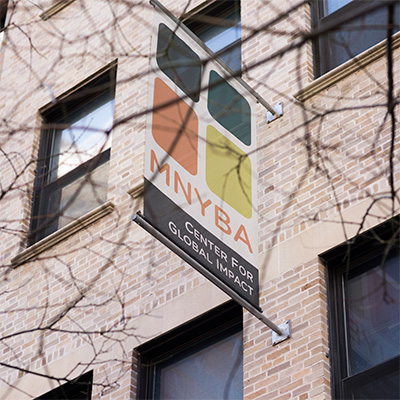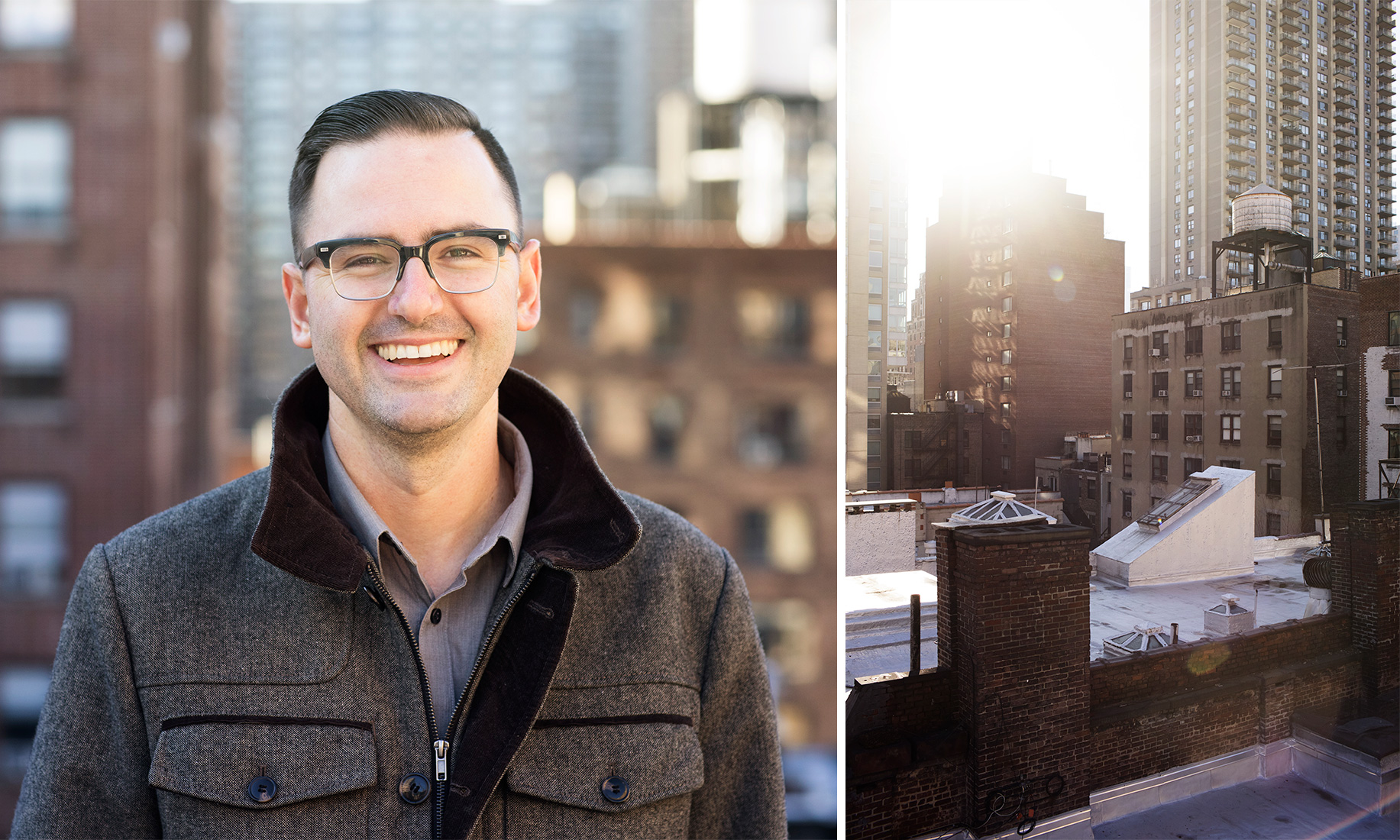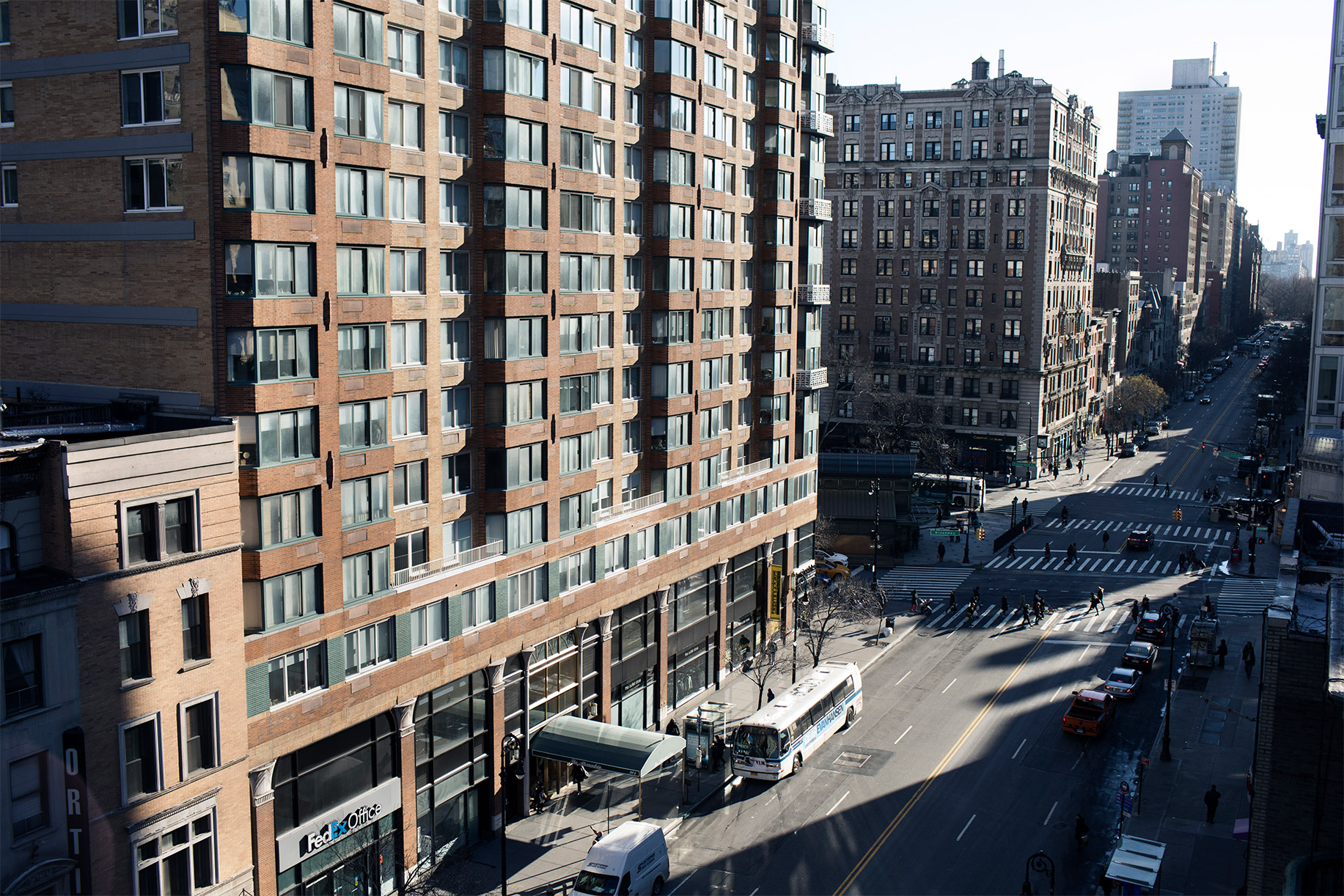In an age of partisan conflict, few causes spark agreement on both sides of the aisle, or unite people of faith and secularism, like the human trafficking crisis that enslaves approximately 45.8 million people around the globe. But if you ask someone how they feel about those who are prostituted, homeless, and undocumented in their communities, their responses may be different — even hostile. That’s because, says modern-day abolitionist Raleigh Sadler, our presuppositions often blind us to the reality that many of these are victims trapped in forms of slavery, whether it be for sex or domestic servitude.
“Our assumptions enslave people,” says Sadler, a Southern Seminary M.Div. alumnus. “When we say, ‘Look at that bum!’ or ‘Oh she’s just having sex for money!’ we’re inferring upon them a narrative we’ve chosen. We take someone who could be victimized and we label them a perpetrator.”
In January 2017, Sadler launched Let My People Go, a nonprofit ministry headquartered in New York City that empowers local churches to fight human trafficking. The launch event hosted at Calvary St. George’s (the birthplace of Alcoholics Anonymous) received a certificate of recognition from NYC Mayor Bill de Blasio and featured leading voices in the justice movement like evangelist Kevin Palau and Richard Lee of International Justice Mission.
 It took losing everything for Raleigh Sadler to find his calling. In April 2012, one of his best friends and seminary roommate Davin Hendrickson died of beta cell lymphoma. Concurrently, his job at the West Virginia Convention of Southern Baptists was eliminated due to budget cuts. So Sadler sold everything he owned and on Oct. 7, 2012, moved to New York City as a Missions Service Corps missionary with the North American Mission Board.
It took losing everything for Raleigh Sadler to find his calling. In April 2012, one of his best friends and seminary roommate Davin Hendrickson died of beta cell lymphoma. Concurrently, his job at the West Virginia Convention of Southern Baptists was eliminated due to budget cuts. So Sadler sold everything he owned and on Oct. 7, 2012, moved to New York City as a Missions Service Corps missionary with the North American Mission Board.
“I think it’s something God probably calls every believer to, ultimately, giving up and just dying to yourself, and I had that opportunity,” said Sadler, who graduated from Southern Seminary in 2007. “It’s been the most challenging but most rewarding time of my ministry. I’ve never seen God do so much in spite of me.”
Love should identify those most vulnerable; love should empower those most vulnerable. We should protect those most vulnerable and actually include them in our congregations.
Sadler attended a Passion Conference in 2012, where he first experienced his calling to minister to vulnerable people. He remembers anti-trafficking leader Christine Caine explain how sin makes everyone complicit in the demand for human trafficking and says he recognized he needed to confront his own brokenness.
He had served since 2010 as collegiate evangelism director for the West Virginia state convention, but felt he placed too much emphasis on earning God’s favor by his success in ministry. Now his eyes were opened to the growing crisis of human trafficking and his ability to make a difference. And as his friend was dying of cancer, Sadler relied on God’s guidance on his own future.

“As I work with vulnerable people and mobilize churches to care for vulnerable people I’m reminded of my own vulnerabilities, my own brokenness, my own need for grace, which ultimately motivates me to go even deeper with it,” Sadler said.
At the time, West Virginia was one of four states that had not adopted legislation to aid victims of human trafficking. Compelled to action, Sadler lobbied a friend in the governor’s office, and when HB 4053 was drafted, he organized local churches to rally at the capitol. The bill passed the legislature in March and was signed into law in April 2012.
“That is where God gave me a passion for mobilization,” Sadler says.
Six months later, Sadler began raising support to serve with NAMB in Manhattan. Within a week of his arrival, Intervarsity Christian Fellowship recruited Sadler to mobilize churches to its Price of Life Invitational, a year-long anti-trafficking program that educated NYC college students on the crisis and raised money to support victims. Let My People Go began as a panel discussion during this time informing churches on how to identify and respond to trafficking. Following the Price of Life finale, Sadler became director of justice ministries at Metropolitan New York Baptist Association.
The connections he established with churches in the New York area allowed Sadler to form his nonprofit organization. For the last four years, LMPG has grown from panel discussions to a pilot project with 25 churches of different ethnic and evangelical groups, and now a national network.
“Love should identify those most vulnerable; love should empower those most vulnerable. We should protect those most vulnerable and actually include them in our congregations,” Sadler said at the Jan. 24 nationwide launch event, outlining the four components of his church strategy. “Our vision is to see a network of churches rise up and serve their community. Not the neighbor of their choosing, but the neighbor God chose for them by placing them in that community.”

Put simply, Sadler says, “Human trafficking is the exploitation of vulnerabilities for commercial gain.” This basic definition means trafficking can manifest as commerical sexual exploitation, domestic servitude, or forced labor, and that outreach can place Christians in ministry opportunities with both victims and perpetrators.
“But the beauty of the gospel is that Christ died not only for the victim but the victimizer,” Sadler said, “and we should seek to love both appropriately, and ultimately know that God has put them in our path.”
According to Sadler, Let My People Go aims to equip local churches with specific, contextualized strategies for identifying people in their congregations and communities whom traffickers naturally target and then assist in building relationships with law enforcement and community leaders, working together to help free and restore victims. Churches who join the LMPG network receive practical justice resources, one-on-one training, and event discounts.
Seth Polk, lead pastor of Cross Lanes Baptist Church in Cross Lanes, West Virginia, serves as the chairman of the board of directors for LMPG. He’s known Sadler for seven years and believes Let My People Go is unique among social justice ministries because it’s “biblically focused and theologically grounded” and “mobilizes the local church, which is the greatest resource.”
“The local church is the closest to those who are most vulnerable, so they have the greatest opportunity to see the needs within their own communities and the vulnerable people that are right around them and minister to them,” Polk said in an interview. “So my hope and prayer would be that local churches would gain a clearer perspective of the possibility of what they can do in their community and that the ground force of the work would be from believers in those churches carrying out the work.”
Sadler says churches who commit to the social justice ministry will find it aligns with core gospel values, especially among congregations who strive to be multiethnic. Vulnerable people, Sadler says, are multiethnic, so welcoming them into a congregation can accomplish that kingdom vision. But according to Sadler, Christians should share Moses’ concern for the spiritual freedom of the enslaved when caring for those trapped in physical bondage.
“The name Let My People Go is definitely not original,” Sadler said. “We generally stop at those four words, but Moses goes on to say, ‘Let my people go that they may serve him’ — the physical and spiritual tied together. What we have in Christ is this greater exodus. We have this redemption being bought back from spiritual slavery. But God cares about our physical well-being as well as our spiritual well-being.”
Pastors interested in partnering with LMPG can find more information on the network’s website, lmpgnetwork.org.
———
S. Craig Sanders is the executive editor of Southern Seminary Magazine.




